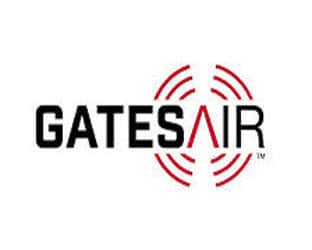GatesAir has been locked in to supply Maxiva liquid-cooled transmitters to South Carolina Educational Television Commission (SCETV) in support of the public broadcaster’s state-wide repack initiatives.
SCETV is the state of South Carolina’s PBS and NPR broadcaster. It will relocate 10 stations to new channel assignments across four phases as part of the post-FCC spectrum auction repack process, with more than half taking place in Phase 5.
To remain in compliance with Phase 5 timelines, SCETV anticipates transmitter deliveries in the coming weeks, with testing to commence in the coming days.
A GatesAir customer for many years, SCETV selected Maxiva ULXTE liquid-cooled transmitters for its nine UHF stations.
SCETV was also granted a fully maximized, high-power VHF channel assignment through the FCC for WNTV-DT in Greenville, and will work with GatesAir on a VHF solution.
“In addition to our goal of comfortably meeting repack deadlines, we are in the midst of a major energy-efficiency initiative to reduce our carbon footprint, and meet South Carolina’s energy-saving goals and objectives,” said Mark Jahnke, Vice President of Technology and Chief Information Officer at SCETV. “Considering the higher power levels of our stations along with South Carolina’s year-round hot and humid climate, GatesAir’s liquid-cooled transmission systems will clearly deliver the highest possible cost-savings across cooling and electrical costs. While we’re still working through the exact calculations, there is no question we’ll immediately downsize our air-conditioning systems by a significant margin. We’re looking forward to moving away from tubes for good, and becoming a fully solid-state organization.”
Jahnke expects that in addition to cost-savings, the transition to all GatesAir liquid-cooled UHF transmitters will also establish a common training and maintenance program across all stations.
SCETV currently uses a mix of air-cooled transmitters across its station group.
Other operational benefits, according to Jahnke, are a quieter RF environment – “no more earplugs” – and modular transmitter designs that improve redundancy. Specifically, engineers will work with a common, manageable set of spare parts, and continue to operate at near full power as modules are hot-swapped and replaced.
In addition to supplying all transmitters and closed-loop liquid-cooled systems under tight deadline, GatesAir is also working with the SCETV team to avoid disruption across their eight FM radio stations. All eight stations share TV antennas and are co-located with TV systems in common transmitter facilities — a cause of concern for any FM broadcaster that may be temporarily forced from the airwaves due to repack-associated tower and antenna work.
“GatesAir’s service department has worked closely with us and our repack antenna supplier, Dielectric, to ensure that none of our TV or FM operations are interrupted as work progresses,” said Jahnke. “And as we look further ahead, GatesAir has equipped all of these transmitters with ATSC 3.0-ready Maxiva XTE exciters, which brings us one big step closer to a fully IP transport stream. Most of my engineering peers in the industry have been through the DTV transition, and we have learned to prepare ourselves as much as possible to keep our costs down and continue to produce content for viewers. GatesAir has us as well-prepared for the future as possible.”
SCETV is the latest station group to commit to GatesAir for repack systems and/or services, joining broadcasters such as Block Communications, Cordillera, Hearst Television, Heartland Media, Quincy Media, and Raycom Media.





